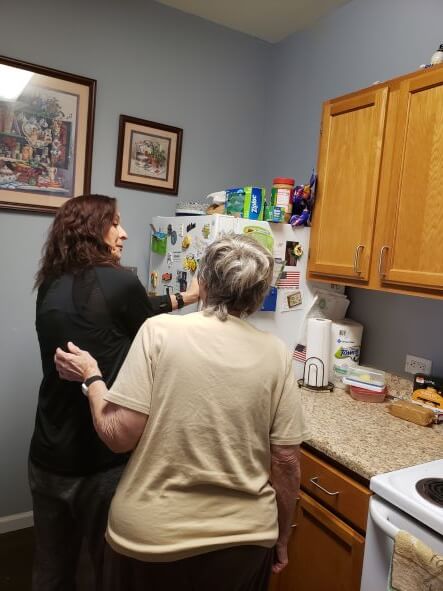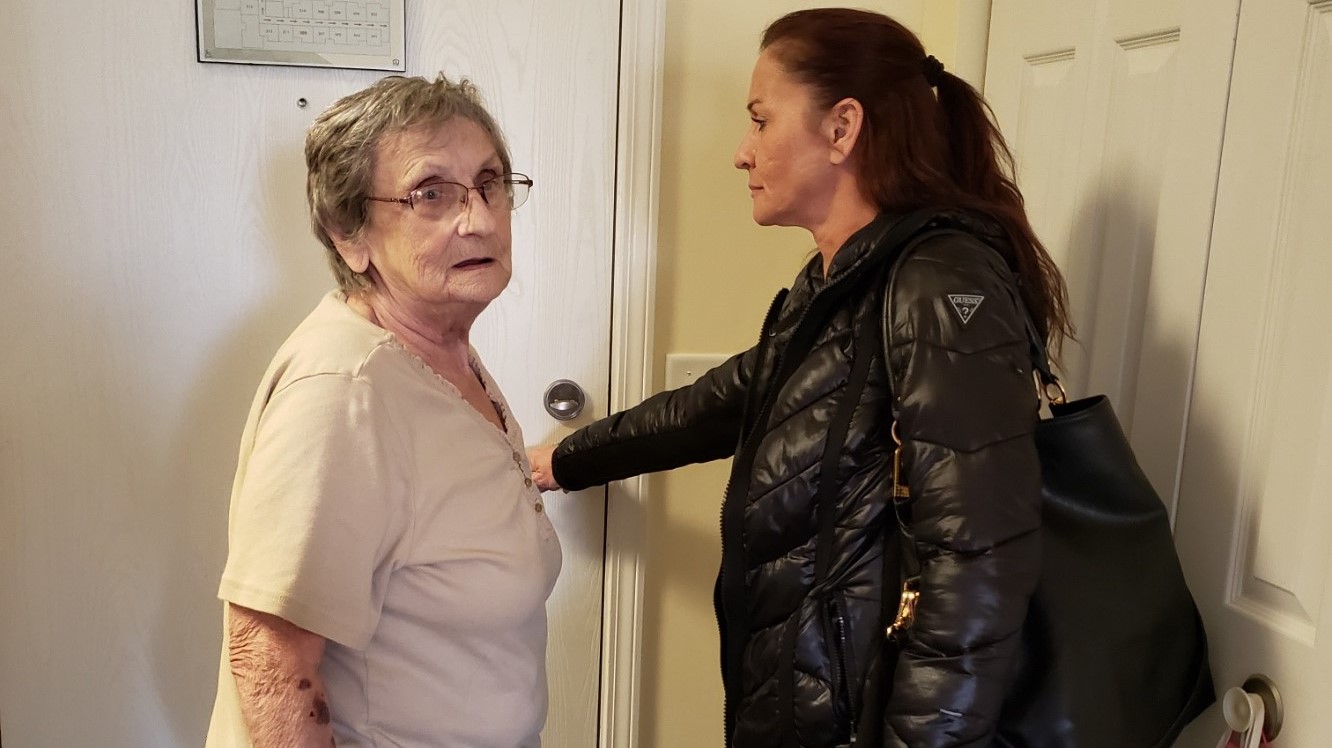What is dementia shadowing and Why is my loved one following me everywhere?
Imagine you wake up in a strange world. You don’t know where you are or how you got there. You don’t know what to do and are very scared and anxious. Fortunately, you see that the person you trust most in the world is with you. You may have forgotten their name, but you trust them.
You are afraid, but you know they will help keep you safe. So you stay as close to them as possible and don’t let them out of your sight. This is how it must feel for someone with Dementia. This behavior is known as Dementia Shadowing.

Dementia is a terrible disease that chips away at the brain of those affected.
It affects memory and other thinking skills, causing them to forget the people around them and their living processes. In addition, the stress of not understanding leads to anxiety and fear.
Anxiety and fear go hand in hand with Dementia.
When does Dementia Shadowing start?
Dementia Shadowing usually shows up in the middle stage. Your loved one may begin to follow you from room to room, including the toilet and shower. They begin to refuse to leave the house, even with other family members or friends.
Many family members don’t know what Dementia shadowing is or why their loved one is stuck to them like glue. As a result, they become very annoyed and often think their loved one is acting that way to annoy them, but that is not the case. You become their lifeline, and they are terrified when they lose sight of you.
Once you understand they are afraid, it changes how you respond to them. You will know they are acting out of fear and not spite.

What aggravates Dementia Shadowing?
Introducing new people into the caregiver circle can increase your loved one’s confusion, anxiety, and agitation. When it is time to add new helpers, plan on seeing an increase in shadowing and other behaviors
Changes in their routine will have the same effect. Therefore, avoid changes in their routine unless absolutely necessary.
What helps Dementia Shadowing?
- Routine is crucial in creating less stress for your loved one. So if I could only share one piece of advice with you, it would be to create a routine early and stick to it!
- Reassurance is another necessary tool to help you get through the Dementia Shadowing stage. You will need to tell them they are safe, that you love them, you are glad they are there repeatedly. They will need to see you to reassure them you are still there, even if you are just in the other room. Often just hearing your voice will help soothe them and remind them they are not alone. Try singing or just talking out loud when you are in the other room.
- Family reminders can help, such as home videos. Make some videos including you and other family members to help remind them of the other family members. You can create your own private Youtube channel, upload videos, and create a family playlist they can watch.
- Eating snacks can keep them occupied, especially if you keep their hands busy eating snacks out of a bowl. Some favorites are Chex mix, Cheerios, popcorn puffs, or M&M’s. Remember to make sure it is something they will not choke if they are having swallowing problems.
- Change their focus with meaningful activity. This can be as simple as folding towels, sorting beads, or working on a puzzle.
- Music is a fantastic tool that is often underused. First, get your loved one a set of headphones that fit over the ears. This will help block out distractions and help them focus on the music. Then, you can create a Youtube playlist with their favorite singers, calming and comforting them.

Everyone is different; what works for one person may not work for your loved one. You will need to find out what works best in your home.
When living with someone shadowing their caregiver, it is easy for the caregiver to forget to make time for themselves. You must find time for yourself, or you will develop caregiver burnout.

Shelter of Calm:
Your Guide Through Dementia's Storm!
Is Dementia's chaos stealing your peace?
We're here to restore the calm, empowering you to confidently face each challenge.
Take the first step towards transformation now.

The Dementia Caregiver Blog Library
Activities, Advanced Directives, Agitation, Apathy, Approach, Apps for Caregivers, Basic Caregiving, Bathing, Bathroom Safety, Caregiver Burnout, Caregiver Compassion, Caregiver Emotions, Caregiver Help, Caregiver Loneliness, Caregiver Support, Cold & Flu Season, Communication Challenges, Dehydration, Dementia Complications, Dementia Doctors, Dementia Safety Home, Dementia Types, Dementia-Friendly, Dressing Issues, Driving Safety, Eating Problems, Fall Prevention, Family Help, Finances, Guns & Dementia, Harm Prevention, Healthcare, Help at Home, Hiding Dementia, Holidays, Hospice, Hospital Stay, In-Between Stage, Kitchen Safety, Laughter, Legal Healthcare, Marijuana use, Medication Tips, Music, Nutrition, Pain, Patience, Poop Problems, Relationships, Reminiscing, Routine, Safety, Sense of Purpose, Shadowing, Sleep Issues, Stages of Dementia, Sundowning, Television, Time Travel, Traveling, Toileting, Wandering
Exploring Caregiving Tools & Resources? Don't Forget to Check Out My Resource Page! 🌟

Hi, I’m Larea, a Certified Dementia Specialist and Registered Nurse with 30 years of hands-on experience helping dementia patients in various settings, from hospitals to nursing homes and hospice. Drawing on personal experiences with my family members and patients over the years, I’m here to help guide you on your caregiving journey.


0 Comments